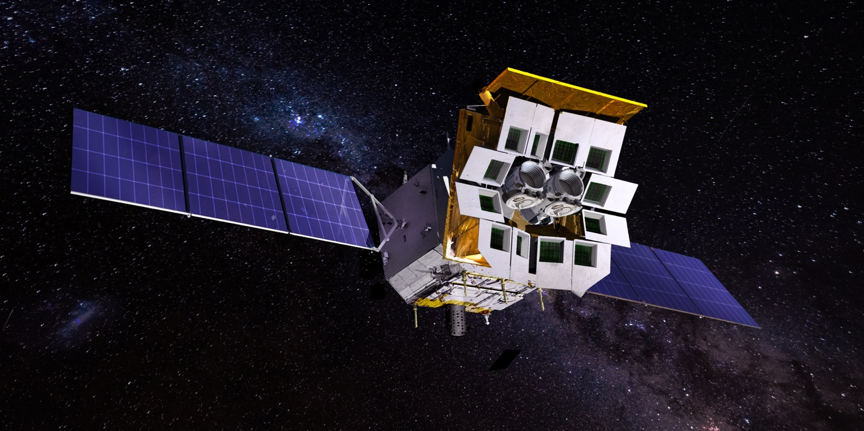JERUSALEM (AP) — Some Palestinians regard him as their Nelson Mandela and a potential future president. Marwan Barghouti is also the most prominent prisoner held by Israel. His freedom has become a focal point in cease-fire talks between Hamas and Israel. Hamas has demanded Barghouti’s release as part of any agreement to end the conflict in Gaza. This demand has brought renewed attention to Barghouti, who remains influential in Palestinian politics despite spending over 20 years in prison. His release could set the stage for his potential election to national office.
Hamas’ move to free Barghouti seems like an effort to gain public support for the militant group and acknowledge his status as a unifying figure for Palestinians. Qadoura Fares, the head of the Palestinian Ministry of Prisoner Affairs in the occupied West Bank, noted that Hamas aims to demonstrate its responsibility and representation within the Palestinian social community.
As international mediators work to broker an agreement between Israel and Hamas after nearly four months of war, senior Hamas official Osama Hamdan has called for Barghouti’s release. Israel is seeking the release of over 100 hostages held by Hamas in Gaza, while Hamas is demanding an end to Israel’s extensive military campaign and the release of thousands of Palestinian prisoners. The conflict began on October 7, when Hamas fighters entered Israel, resulting in the deaths of about 1,200 people and the capture of 250 hostages. This incited an Israeli ground and air offensive that has led to the deaths of over 27,000 Palestinians, according to local health officials, and has caused a humanitarian crisis in Gaza.
Following a weeklong truce in November, over 100 hostages were released. Israel estimates that 136 hostages remain captive, although 20 have been declared deceased. There is mounting pressure on Prime Minister Benjamin Netanyahu to reach an agreement as protests calling for the immediate release of the hostages sweep across Israel, amid concerns that time is running out to bring them back safely.
For Palestinians, the detention of their loved ones is deeply emotional. While Israel views “security prisoners” as terrorists, Palestinians widely see them as heroes fighting against Israeli occupation. According to the Israeli human rights group HaMoked, Israel is currently holding nearly 9,000 security prisoners. Hamas is seeking the release of all of them, but Hamdan specifically mentioned Barghouti and Ahmad Saadat, who leads a faction responsible for killing an Israeli Cabinet minister in 2001 and is serving a 30-year sentence for alleged involvement in attacks.
Many Palestinians see the 64-year-old Barghouti, a member of Palestinian President Mahmoud Abbas’ Fatah party, as a potential successor to the 88-year-old Abbas, who leads the internationally recognized Palestinian Authority governing parts of the Israeli-occupied West Bank. Abbas, whose forces in Gaza were overwhelmed by Hamas in 2007, aims to regain control of the territory following the war. However, he is deeply unpopular due to corruption within the authority and his security coordination with the Israeli army. Palestinians have not held elections since 2006, when Hamas obtained a parliamentary majority.
Fares, a supporter of Barghouti, mentioned that if Barghouti is released, he could become a consensus candidate in a new round of elections that Hamas, Fatah, and other Palestinian factions could unite behind. A December opinion poll during the war showed Barghouti as the most popular politician among Palestinians, ahead of both Abbas and Hamas’ leader, Ismail Haniyeh. Although Barghouti is viewed as a terrorist by Israelis, convincing Israel to release him will be a difficult task.
Barghouti, a prominent figure in the West Bank during the second Palestinian uprising in the early 2000s, is serving five life sentences for his involvement in several deadly attacks. During that uprising, Palestinian militants carried out deadly suicide bombings and shooting attacks targeting buses, restaurants, hotels, and Israelis in the West Bank, resulting in severe Israeli military reprisals.
Barghouti was arrested in 2002 on multiple counts of murder and did not defend himself, refusing to acknowledge the court’s authority. Since then, he has frequently made headlines. In 2021, he registered his own list for parliamentary elections, which were later canceled. A few years earlier, he led over 1,500 prisoners in a 40-day hunger strike to demand better treatment in the Israeli prison system. Despite being incarcerated, he continues to advocate for a Palestinian state in the West Bank, Gaza, and East Jerusalem — territories seized by Israel in the 1967 war.
Born in the West Bank village of Kobar in 1962, Barghouti helped lead student protests against the Israeli occupation while studying history and politics at Bir Zeit University. He became an organizer in the first Palestinian uprising, but Israel deported him to Jordan. He returned to the West Bank in the 1990s as part of interim peace agreements meant to pave the way for a Palestinian state, but these efforts stalled at the end of the decade when a second uprising erupted. Barghouti was seen as the political leader of Fatah’s armed wing at the time.
Israel has previously rejected calls to release Barghouti and declined to include him in a 2011 exchange of over 1,000 Palestinian prisoners for a single soldier held captive in Gaza by Hamas. Yehya Sinwar, the current Hamas leader in Gaza and a mastermind of the Oct. 7 attack, was released in that exchange. With the lives of over 100 hostages at stake, there is now greater pressure on Israel to release Palestinian prisoners, potentially creating an opportunity for a deal that could result in Barghouti’s release and strengthen Hamas’ position among Palestinians.
“Hamas is now more powerful and astute than ever before,” Fares stated. “They understand the importance of securing consensus among the Palestinian people.”










